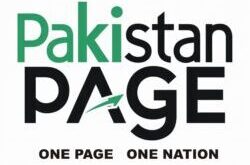The jingle of the scarf
By: Faryal Safeer
Hijab Day, observed on September 4th in various countries including Iran, Afghanistan, and several nations across South and Central Asia, serves as a poignant reminder of the significance of the hijab in the lives of Muslim women. This day is dedicated to reflecting on the principles of modesty, faith, and individuality that the hijab represents, while also expressing solidarity against discrimination faced by Muslim women worldwide.
The term “hijab,” originating from Arabic and meaning “barrier,” transcends religious boundaries. It has historical roots dating back to ancient times and is recommended in various forms within many religions, including Islam, Christianity, Judaism, and others. This universal adoption underscores its broader cultural and religious significance beyond its association with Islam alone.
In recent decades, the hijab has increasingly come under scrutiny and faced challenges, particularly following global events such as 9/11. Unfair associations linking the hijab with extremism and terrorism have led to legislative measures in some countries, including bans on wearing the hijab in public spaces. These actions have sparked widespread debates and activism among Muslim women who have courageously defended their right to wear the hijab as a symbol of their religious identity and personal choice.
Despite these challenges, Muslim women have continued to make significant strides in various fields while proudly wearing the hijab. From sports arenas to educational institutions and professional careers, women have demonstrated resilience and excellence, challenging stereotypes and contributing positively to their communities and societies at large. The hijab, far from being a hindrance, is celebrated as a symbol of empowerment that enhances beauty and embodies values of modesty and dignity.
Hijab Day is marked by educational workshops, awareness campaigns, and community events aimed at promoting understanding and acceptance of the hijab’s true meaning and significance. These initiatives seek to dispel misconceptions and foster dialogue that highlights the diverse cultural and religious perspectives surrounding the hijab. By engaging in these activities, participants gain a deeper appreciation for the hijab as not merely a garment, but a profound expression of faith and identity.
In conclusion, Hijab Day serves as a platform for celebrating the diversity and resilience of Muslim women who choose to wear the hijab. It emphasizes the universal values of modesty, faith, and personal choice that transcend cultural and religious boundaries. By promoting awareness and understanding, Hijab Day contributes to a more inclusive society where individuals of all backgrounds can appreciate and respect each other’s beliefs and choices.Through ongoing dialogue and education, the true essence and importance of the hijab in promoting a society grounded in respect and dignity are reaffirmed year after year on Hijab Day.


Good article,
Hijab is sign of dignity, Muslim women should promote it .
Yes
Thanks 😊
Excellent Faryal ,Your this article is really appreciateable.
Thankx for ur appreciation 👏
For a girl, hijab is her honour With Hijab a girl can make her life easy and comfortable You have written it very well. You have given very good advice for the high rank. May Allah always keep you in peace.
JazkAllah😊 stay tuned with us
Excellent work.
It shows your deep concern and knowledge.
Keep it up and keep us motivated through your awesome articles.
Thanks for ur appreciation😊
Your conclusion explains Hijab Day really well and shows its importance in bringing people together with respect and understanding. It’s great how you mention the values of modesty, faith, and personal choice. To make it even more interesting, you could add some real-life examples or talk more about how people learn from these discussions. Your writing is strong, and adding a bit more could help readers connect with the topic even more. Keep it up you’re doing a great job!
JazakAllah sukhriya😊 we’ll try our best next time